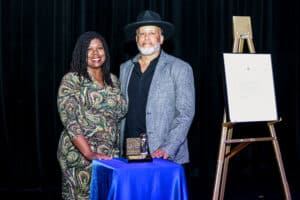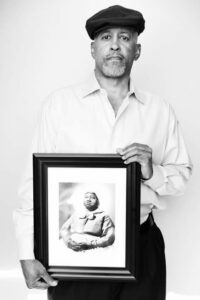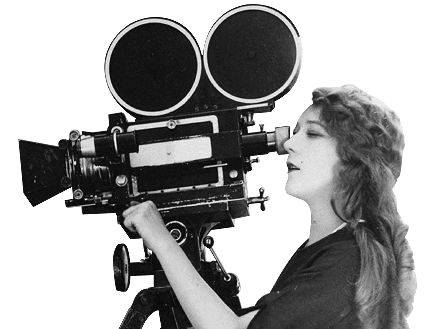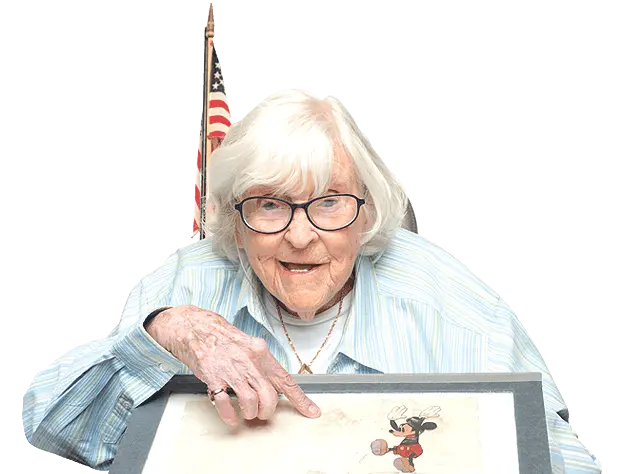Hattie McDaniel was the first African-American recipient of an Academy Award, recognized for her performance in 1939’s Gone with the Wind. The Oscar was just one highlight of a prestigious career in the industry as an actress, singer, and radio personality. When Hattie was diagnosed with breast cancer in 

Hattie’s great-grand-nephew, actor-producer Kevin John Goff, has been an invaluable MPTF volunteer for several years, doing documentary collaborating with residents, Angel Cards, and working with our Passing the Torch mentorship program. He recently appeared on our live KTLA telethon to talk with MPTF NextGen‘s Jason George about Hattie’s legacy and the importance of MPTF, as well as the story of Hattie’s Oscar® which she bequeathed to Howard University in her last-will-and-testament. The award disappeared shortly after the assassination of Dr. Martin Luther King Jr. on April 4, 1968 and has been missing ever since. Last year, the Academy arranged to replace her Oscar which is now back in its rightful home. Mr. Goff has also been hard at work on a new book, Hattie McDaniel: A Reflective Life, which will be released by Barnes & Noble during Spring 2024. As Kevin explains, “One of my favorite quotes from Aunt Hattie is ‘Faith is the black person’s federal reserve system.’ Her quote was so telling because any black person living and working during the Jim Crow Era had to have faith just to survive.” Find out more about Hattie here, and watch the full video above.









